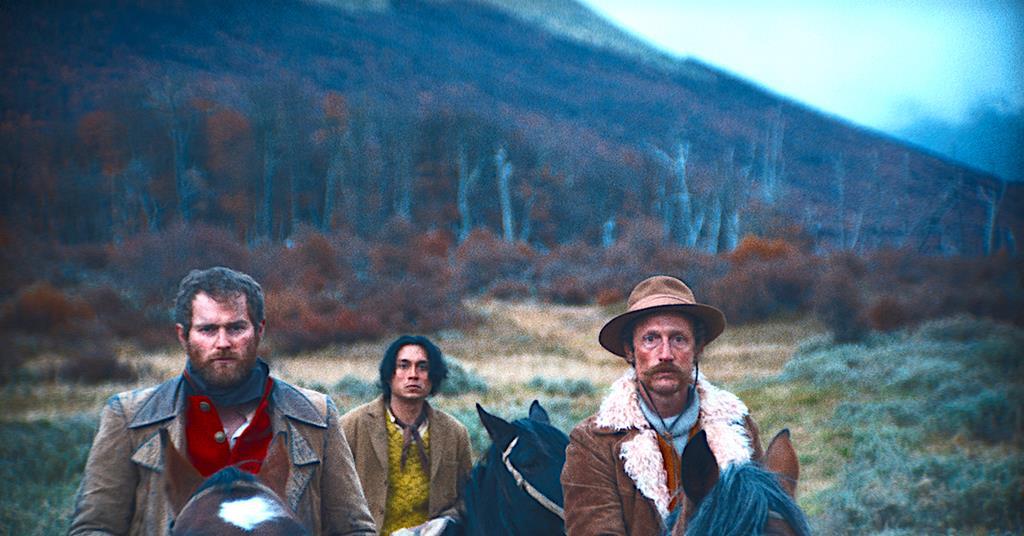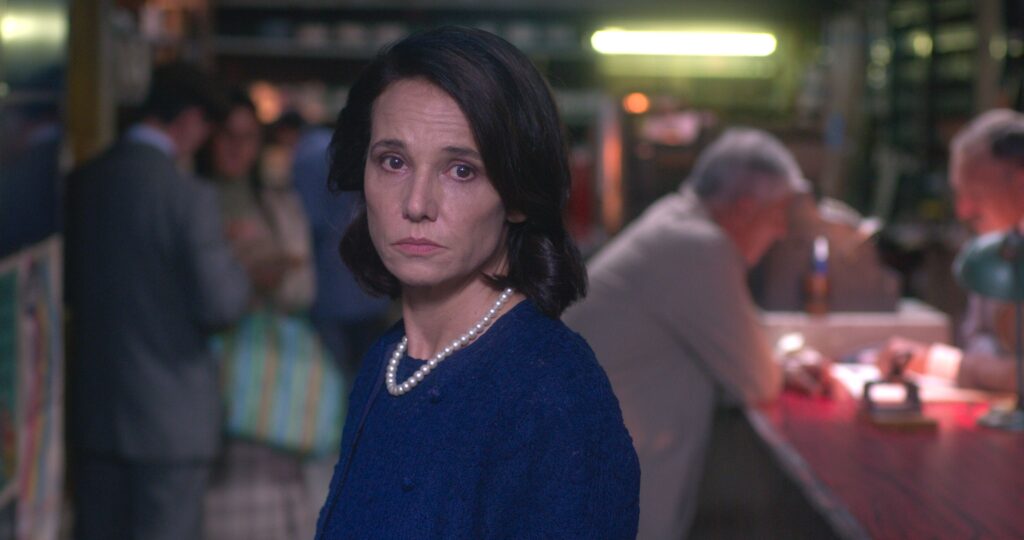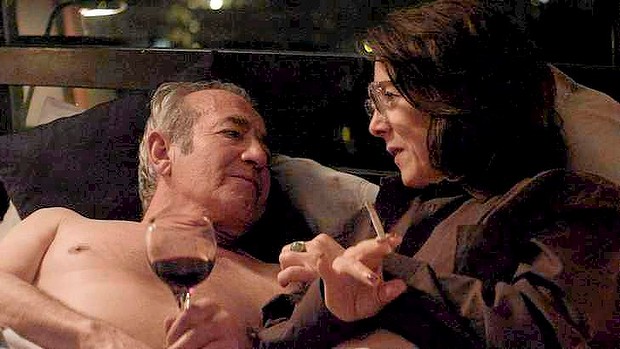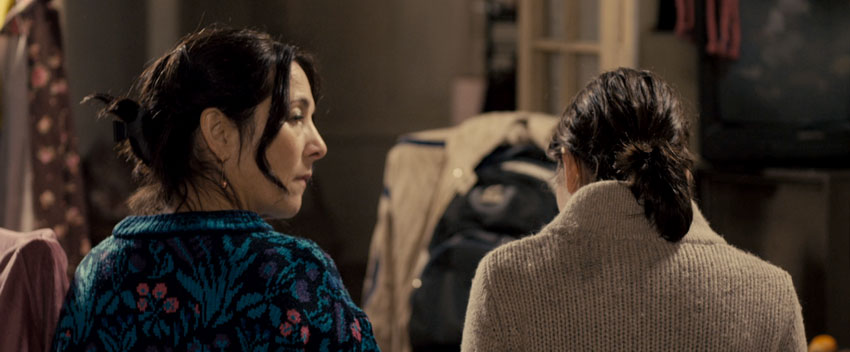
The grimly beautiful Chilean drama The Settlers takes us to Tierra del Fuego in 1901 where Spanish tycoon Jose Menendez (Alfredo Castro) is setting up a massive sheep ranch on 250,000 acres that spans across both Chile and Argentina. Menendez assigns his foreman, a ruthless Scot former soldier, Alexander MacLennan (Mark Stanley), to clear out the indigenous residents, who are inconveniently eating some of the sheep. Melendez makes it clear to MacLennan that he wants the indigenous people exterminated. Melendez and MacLennan are real historical figures, and these events are known as the Selk’nam Genocide.
MacLennan is assigned Bill (Benjamin Westfall), an American veteran of Indian conflicts. He also brings along the half-indigenous local man Segundo (Camilo Arancibilia). Neither MacLennan or Bill sees any humanity in the indigenous, and go about their work as if they were eradicating household pests. It’s pretty awful. There is some on-screen gore, but we experience most of the horror through the reaction of Segundo.
The Settlers jumps ahead almost a decade to explore the impact of the events on some of the key characters and their loved ones. There has to be a reckoning, after all, even if it can’t be fully satisfying.
Sobering as it is, The Settlers is remarkably fine cinema, and is an impressive debut feature for director Felipe Galvez Haberle. The matter-of-fact brutality is almost dwarfed by the stark, vast expanses of Patagonia. Some of the landscape shots by cinematographer Simone D’Arcangelo (The Tale of King Crab) are absolutely breathtaking. The unsettling story is enhanced by a soundtrack reminiscent, but not derivative of, Ennio Morricone’s spaghetti western scores.
First time actress Mishell Guana is very powerful as an indigenous woman. Sam Spruell colorfully brings alive a rogue British colonel (think Kurz in Apocalypse Now!).
The Settlers played in the Un Certain Regard program at Cannes, winning the FIPRESCI prize, and has won awards at a slew of other international film festivals. The Settlers is streaming on MUBI.





